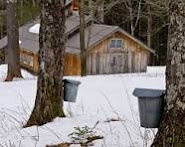The Middle East
has long been the place where well ordered, ‘reasonable’, plans conceived in
the comfortable, air-conditioned rooms in Washington, London or other capitals
of Europe go to die. Such has been the fate of all plans since the post-World
War I divisions, the disastrous British or French mandates, military coups, clumsy
attempts at ‘regime change’, recurring Israeli/Palestinian hostilities, western
intervention, and on, and on, and on.
But the situation on the ground has changed with
the sudden Iranian weakness, withdrawal of Russia, powerful Israeli aggression
and determination to re-shape the region, the near destruction of Hamas and Hezbollah,
and the unending plight of Palestinians once again mere pawns in a vicious game
they can’t possibly win.
Now there is a
great deal of chatter about possible new outcomes., new shape of the Middle
East. Will the Iranian regime change? If so, will that change come internally
or be imposed by military might? Will
Iran continue with its nuclear program? Will the nationalist/religious zealots
in Israel achieve their goal of ripping all the Palestinians from their now-diminished
homeland and expelling them to distant lands? Who will fill the apparent vacuum
in Syria? What role, if any, will Trump’s America play in the re-configuration
of the region? And what will happen in Israel itself?
 |
| Pre-WW I Middle East |
There is nothing
new about turmoil in the region, however, something is different this
time. Strong regional players like Saudi Arabia, the UAE, Qatar and Turkey seem
unwilling to let outside forces determine the shape of the region. According to
conversations I have had with people who know the region well there is a new, strong
desire and ability to take matters into their own hands. Doubt they could do
much worse than the Western economic/political/military interventions for the
last 100 years.
 |
| Current Middle East |
Included in these
discussions is speculation about whether the hard-line, uncompromising
nationalists in Iran could yield to more pragmatic forces – still very
nationalistic but willing to make certain difficult compromises to bring Iran
in from the cold. Reconstruction of the Iranian economy will require large
infusions of cash and talent. In addition to Western companies that may have a
role to play, it is also possible that Turkey and the Gulf countries could
supply the required talent and money. What price would Iran be willing to pay
to achieve this? Iran would probably have to give up its nuclear weapons goal
and remove support for forces like Hezbollah and Hamas. Unlikely? Improbable?
Perhaps. But at least such possibilities are on the table.
The same goes for
reconstruction of Syria. None of the regional players would like see groups
like ISIS fill the vacuum created by the collapse of the Assad regime. And no one
wants a repeat of the chaos that followed the downfall of Saddam Hussein in
Iraq. Very difficult to see any serious reconstruction in Syria going forward
without a large Turkish presence. One extremely knowledgeable friend said
discussions between Turkey and Saudi on the reconstruction of Syria are already
underway. Turkey’s involvement in Syria becomes easier now that the Kurdish guerilla
group PKK has surrendered its arms and vowed to give up hostilities against
Turkey launched from Syria or Iraq.
What could any
rapprochement between the Arab states and Iran mean for Israel, especially an
Israel controlled by Netanyahu and his nationalist allies? Such a rapprochement
is probably something they would not like to see because it
would present a more unified and stronger counterforce than the country has
ever faced. It is difficult to see this new configuration in the region willing
to have much to do with an Israel that has larger regional aspirations and that
has driven millions of Palestinians out of their homeland. The current Israeli
policy of making Palestinian life so miserable that they would welcome
expulsion to countries like Libya or South Sudan does not help any possible
reconciliation between Israel and its Arab neighbours. In some way, the
deportations of immigrants from the United States to South Sudan can be seen as
a test run for any later Palestinian ‘relocation.’
 |
| Will Israel re-claim the Palestinian West Bank and Gaza? |
There’s not much
the Arabs can do to stop such an expulsion – similar to the Nazi effort to find
a new homeland – some place like Madagascar - for German Jews before the
Holocaust. Arab states are unable and unwilling to intervene militarily. But
they can freeze whatever relations they have now, effectively isolate Israel
and await developments within Israel. The internal divisions in Israel are deep
and who knows how the political struggle will play out. Will Netanyahu stay in
power? Will his many opponents compromise with each other create a realistic
alternative? There is a great deal of noise inside Israel right now but not
much clarity.
What role, if any,
will the United States play? Is it willing to stand aside and let the Arabs and
Iranians determine their own fate? Again, very hard to say. The Trump
administration’s general ambivalence toward international relations in general
and the fear of getting dragged into another no-win Middle Eastern quagmire
suggest that Trump would be happy to pass the torch to regional powers. But he
is nothing if not mercurial. And only the very foolhardy would attempt to predict
anything.
All one can safely
say now is that the situation is more fluid than ever and that the major powers
like Russia and United States have reduced influence. It remains to be seen if
the local players can indeed shape a new Middle East, one that finally after
more than 100 years determines its own course.














